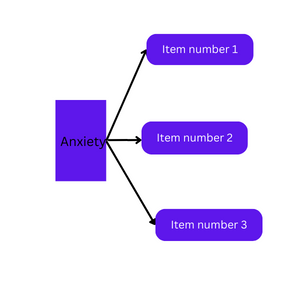Contents
- 1 Hire PhD Statisticians for Psychology Statistics Help
- 2 Common Statistical Tests our Statisticians Utilize in Psychology Statistics Help
- 3 Inferential statistics
- 4 One-way repeated measures (ANOVA)
- 5 T-tests
- 6 How Psychology Statistics Help Add Value to Psychology Research
- 7 How Prowriterz Assists you Apply Statistical Techniques in Psychology Research
- 8 Why Hire Statisticians from Prowriterz To Help you with Psychology Statistics Research and Assignments
Hire PhD Statisticians for Psychology Statistics Help
Statistics forms a major part of the curriculum for psychology program. Students pursuing psychology related courses do not understand why they have to understand statistics. They often treat statistics as an elective course greatly undermining their chances to hone their quantitative psychology skills. Luckily our psychology statistics help offers you invaluable assistance to analyze and interpret your psychology data.
Did you know to succeed as a psychologist you must have good understanding of statistics. Psychologists deal with study of human behavior and emotions. Psychologists use different methods to collect data about human behavior including longitudinal studies, observational studies, surveys and experiment. After data collection, they use variety of statistical methods and techniques to analyze data and draw meaningful conclusion about human behavior. Statistics in psychology offers vital tools to understand and make accurate conclusion about human behavior.
Psychology research, including cognitive psychology, clinical psychology, social psychology and developmental psychology, utilizes mathematical and statistical methods to design studies, collect and analyze data to make accurate inference about psychological phenomena. Therefore, statistics offers powerful tools for psychologists to test hypothesis, identify patterns and draw inference from complex psychology data. Unfortunately most psychology students struggle to perform basic statistical tests. Our psychology statistics help is tailored to assist you perform even the most complex statistical technique on your data.
Once psychology data is collected the researcher utilizes statistics to draw inference. For instance, a psychologist may use statistics to determine whether there is significant difference between groups; a clinical psychologist researcher may be interested to know whether an intervention such as CBT is effective or whether there is a relationship between variables.
Read Interesting psychological statistics about human behavior
Common Statistical Tests our Statisticians Utilize in Psychology Statistics Help
Statistical techniques are widely applied in psychology research to make inference about human behavior or design research studies. To ensure that the results obtained are valid and accurate the choice statistical test to apply in psychology research depends on type of data and research questions of interest. Our psychology statistics helpers understand all statistical techniques and the accompanying type of data that suits them. Below are common statistical tests that we utilize in psychology in our practice
Descriptive statistics.
These statistical measures include measures of central tendency (median, mode, average, percentiles), measures of viability (variance, standard deviation), shape of distribution (skewness or kurtosis). Descriptive statistics is concerned with describing and summarizing key characteristics of a dataset through coefficients or graphical representation of the obtained data. It assists users to better understand the data and creates foundation for other data analysis to be performed. In case you need descriptive statistics of your psychology data do not hesitate to ask for help with psychology statistics from us.
Inferential statistics
Once a statistician understands the key characteristics of the data, he will need to infer if the sample obtained differs from the population and make predictions. Psychology researchers can only make generalization if a sample is a true representation of the entire population. Among the inferential statistics methods we use at our psychology statistics help include comparison tests, hypothesis testing, point and interval estimates, effect size calculations and confidence intervals.
Correlation analysis
Psychology research entails establishing existence of relationship and the strength of that relationship between two variables. For instance is there a relationship between number of hours exercising and stress levels. In a correlational analysis, there are three possible outcomes that include positive correlations, negative correlations or no correlations.
Regression analysis
It is a statistical techniques used in psychology research to identify and establish relationship between an outcome variable of interest and predictors variables. For instance, a psychology researcher can use regression to predict test score for anxiety based on measures of social support and stress scores. Regression analysis also shows the strength and direction of the predictor variables on outcome variable of interest. We have expert statisticians to assist you perform regression analysis on your psychology data and provide accurate interpretation.
Factor analysis
Factor analysis is another common statistical method that is utilized in psychology research. It is an interdependence technique that uses data summarization and reduction procedures to simplify interrelated measures by condensing large number of variable into few underlying dimensions known as factors. For instance, a psychology researcher can use factor analysis to identify underlying variables in the domain of personality such as anxiety. Factor analysis is most utilized statistical technique in psychology research and therefore most sought statistics help for psychology research. Our statisticians are well conversant with performing both exploratory and confirmatory factor analysis.

ANOVA (Analysis of Variance)
As a psychology researcher you will be comparing mean differences of two or more unrelated groups receiving treatments. To infer whether significant difference between groups exists due to randomness or effect you will use ANOVA. For example, ANOVA is used when a researcher intends to measure effectiveness of cognitive behavioral therapy (CBT) on patient exhibiting. ANOVA can be further be branched into one way ANOVA or two way ANOVA.
One way ANOVA compares if sample means of two or more unrelated groups statistically differ. The statistical method is applied on data with categorical independent variable and one continuous dependent variable. The independent variable should have three groups and above. On the other hand, two-way ANOVA measures the difference of means in two groups of independent variable. The outcome is continuous variable while the independent variable is categorical variable with two levels. Our psychology statistics help also involve assisting psychology students and researcher perform either one way ANOVA or two way ANOVA depending on their research questions and data collected.
One-way repeated measures (ANOVA)
It is also referred as within-subject ANOVA and measures difference in three or more dependent group means where cases (participants) are same in each related group.
Chi-square tests
Chi-square test uses ordinal and nominal data. It is a non-parametric test that measures goodness of fit and test of independence. Test of independence determines whether categorical variables have significant association or related to each other. On the other hand, good of fit measures whether observed frequencies are statistically different from expected outcome (frequencies). Chi-square test is used in analysis of psychology data if the following conditions are met
- Sample was randomly selected from a population
- Both independent and dependent variables are categorical
- Each group or combination of groups is expected to have a minimum of five observations
T-tests
It is a parametric test that compares means of two groups. There are three different types of t-test that include: one sample t-test, two sample t-test and paired t-test. T-tests are common statistical methods used by psychology researchers and psychologists in studying effects of treatment on human behavior and personality. Paired t-test does a comparison of means of two variables obtained from same group or participants. For example a psychology researcher would like to investigate whether cognitive behavioral theory reduces anxiety levels among PTSD patients. Paired t-test will be used to determine statistical significance between mean value scores in the patients before and after CBT treatment. Two sample t-test does a comparison of mean values of variable measured from two different groups. Two sample t-test is used in psychology research when comparing mean scores for a treatment and non treatment group.
Our team of statisticians will offer immense value to anyone looking for psychology statistics help in basic or advanced statistical techniques. Their mastery of multivariate analysis, mathematical and statistical modeling of psychological processes will offer necessary support to understand human behavior, personality and traits in any study.
How Psychology Statistics Help Add Value to Psychology Research
Statistics offers psychology researchers with powerful tools to design experiment, collect data, analyze data and interpret results to arrive at accurate conclusions about human behavior and mental health patterns. Below are various ways that statistics help in psychology research
Designing research studies: Psychology researchers use statistical techniques and methods to design experiments, determine sample size, pilot testing and identify confounding variables.
Data collection instruments: Statistics plays a key role in designing questionnaire, psychometric tests, psychological constructs and other assessment tools. In addition, statisticians use reliability tests such as cronbach alpha coefficient to measure internal consistency of data collection instruments.
Analyzing psychology data: Once data has been collected the next stage involves statistical analysis to identify patterns and relationship. Statisticians use powerful programs such as SPSS, R-Studio or SAS to analyze large datasets and draw inference about the results. Statistics help psychology researchers to draw conclusions about human behavior, personality and traits by establishing relationships, identifying patterns and associations.
Testing hypothesis: Researchers of psychology determine if their findings are significant by testing hypothesis. Statistical tests offer a powerful tool to determine if the findings are by chance or real effect.
Generalizing findings: Statistical techniques allow psychology researchers to infer whether a sample represents population of interest. Through statistical methods such as point estimation, confidence interval, sampling error and other inferential statistics psychology researchers can draw conclusion about a population based on a sample collected.
Interpreting results and finding: Without statistics it would be impossible to interpret results. Statistical tests such as t-test and ANOVA allows researchers to determine effectiveness of psychological interventions and treatments on a phenomena. Additionally, statistics assists researchers determine cause-effect relationship between variables.
Identify patterns: Statistical techniques provide psychology researchers with tools to uncover relationship and identify patterns within data. It makes it possible for psychology researchers to learn new insights and formulate new theories about human behavior.
Data visualization and presentation of results: Descriptive statistics provides researchers with a communication tool to broadcast their finding through graphs, charts or tables. Similarly, researchers use statistical methods to report their findings in peer reviewed articles, textbooks and presentation.
How Prowriterz Assists you Apply Statistical Techniques in Psychology Research
Statistics is an add-on course in psychology degree program. Most students have poor grasp of statistical principles and application in psychology research. We at https://prowriterz.com have a team of statisticians with perfect grasp and knowledge of application of statistics in psychology research. We provide students and researchers with professional help with psychology statistics in their research journey. Our expert statisticians will assist you in the following ways:
- Design, conduct and analyze data obtained from experimental and survey studies
- Writing accurate and perfect methodology chapter, results and finding chapter for your psychology dissertation, research paper, capstone project or thesis
- Writing clear and perfect APA formatted psychology lab report
- Completing your SPSS psychology statistics assignment
Our statisticians are conversant with every statistical program including SPSS, STATA, R-Studio or SAS. Additionally, they understand application of statistical theory and modeling of psychology data. Our statisticians have provided psychology statistics help to hundreds of students and researchers in USA, UK, Canada, UAE, Saudi Arabia and South Africa. We have mastered diverse set of statistical techniques necessary in psychology research.
Why Hire Statisticians from Prowriterz To Help you with Psychology Statistics Research and Assignments
Most college students struggle to complete SPSS psychology statistics assignments due to poor knowledge of mathematics and statistics. Similarly, most graduate students face challenges analyzing data for their psychology research. At prowriterz we are committed to assist you pass this hurdle by availing expert psychology statistics help for your assignments, research paper, capstone projects, dissertation or thesis. You should highly consider hiring our statisticians due to the following reasons
- Expert PhD Statisticians and quantitative psychologists: We hire only PhD statisticians and quantitative psychologists in our team. This is to guarantee you expert statistical input in your work. Our statisticians and quantitative psychologists have advanced knowledge in multivariate statistical analysis, exposure to statistical programs and application of statistical theory and modeling. They offer psychology researchers with invaluable statistical support in designing surveys, data analysis and report writing
Meet our team of PhD statisticians
- Affordable rates and discount: Our psychology statistics help services are tailored to suit every budget. Starting from as low as $30 you can have your college level psychology data analyzed. For complex psychology statistics support and consulting we have a negotiated package that will not break your bank.
- Confidentiality: We ensure that your data is safe and protected from unauthorized access. Your data will be only accessed by our hired statisticians via secured computers. This is to safeguard integrity of your data from access or sharing by third parties.



